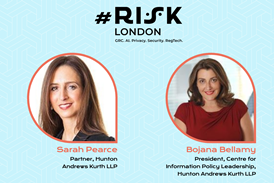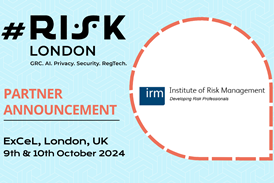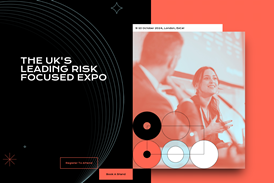PrivSec Report
PrivSec Report - a GRC World Forums brand.
 Sponsored
SponsoredRansomware: when your data backup is your last line of defence, make it count
Not all data backups are created equal.
The cyber-threat landscape is ever evolving, and undoubtedly one of the biggest current threats is ransomware. Ransomware is a type of malicious software that threatens to publish the victim’s data, or perpetually block access to it, unless a ransom is paid. For modern organizations who rely on data to operate and thrive, this kind of attack can be catastrophic. A recent global report from Sophos found that the average cost of paying a ransom was $1.4 million, or $730,000 in equivalent loss of revenue owing to downtime should they choose not to. Sponsored
SponsoredThe importance of data protection as a service in the post-pandemic world
Due to the COVID-19 pandemic, over the past 18 months global working habits have changed considerably. With the outbreak in the UK starting at the beginning of 2020, orders to stay at home were given across the country. As businesses rushed to implement strategies that would allow them to continue operations, cloud adoption and remote working accelerated at unprecedented rates.
 Webinar
WebinarImproving Outcomes with Informatics Powered by Safe Data
Health organizations are working hard to safely leverage patient data across the care continuum to improve outcomes.
 Webinar
WebinarAgile Crypto and the Quantum Threat
As the reality of quantum computing approaches, companies and other organizations need to stay one step ahead of the potential computational power that could render today’s encryption algorithms obsolete.
 Webinar
WebinarTop Privacy Priorities for 2021
2020 was a whirlwind for privacy — with a pandemic, the invalidation of the EU-U.S. Privacy Shield brought about by the “Schrems II” ruling, and the state of California continues to push privacy regulation to the forefront in the U.S., the importance of data protection continues to grow globally 2021 continues.
 Webinar
WebinarManaging Complex DSARs in the Enterprise
The number and complexity of Data Subject Access Requests (DSARs) received from both customers and employees has increased over the past couple of years, and some fear Covid-related redundancies will further drive up the numbers.
 Webinar
WebinarBecoming a Data-Driven Bank with Privacy at the Core
Leveraging sensitive data to deliver insights and product innovation is more important to running a profitable bank than ever before. This increased demand for sensitive data is creating a strain on existing processes as regulations continue to restrict how and for what personal data can be used.
 ebook
ebookAn Agile Approach to Reduce Privacy Risk and Earn Customer Trust
Traditional data protection is sinking under the perfect storm of constant data change, accelerating data speed, and surging data volume—and the customer backlash is rising.
 Article
ArticleOne Year on from the Cambridge Analytica Scandal
Just one year after news broke of the shocking relationship between Facebook and Cambridge Analytica, the scandal has lost none of its relevance in terms of how organisations worldwide handle data on consumers and employees.
 Webinar
WebinarA Day In the Life of Incident and Data Breach
Organizations across the globe have experienced incident and data breaches for the past 10 years. What has changed significantly during this time is the regulatory scrutiny, the public nature of breaches and the emerging private right of action supported by very strong privacy advocacy groups.
 Webinar
WebinarCan AI solve the Schrems II puzzle?
What are your options for cross border data-sharing for 2021? Alexandra Ebert, Chief Trust Officer of MOSTLY AI, a synthetic data solution startup, offers a way out of the dilemma with privacy-compliant, accurate synthetic data.
 ebook
ebookA Practical Guide on How to Protect Your Organization’s Sensitive Data
IT Security teams are looking for a holistic approach to solving today’s data security challenges, with a data security platform that enables them to identify and protect sensitive data wherever it resides, using a comprehensive set of data protection mechanisms and centralized policy and key management.
 Webinar
WebinarCareer Development for Privacy Professionals
As privacy and data protection roles are becoming more diverse, so is the required skillset from candidates. You’re no longer (necessarily) a DPO with a legal background whose main focus is risk identification in light of regulatory requirements.
 Feature
FeatureWill Covid-19 lead to a permanent change in the way we work?
Before Covid-19, home working was on the rise anyway. Will the shift to home-working created by the virus crisis create a permanent shift, and if so, what will that mean for business, the economy, climate change and for that seldom discussed aspiration: the quality of life?
 News
NewsHuman error remains the main cause of data breaches
The Shred-it’s Ninth Annual Data Protection Report identifies the insights, opinions and practices of data protection among Small Business Owners (SBOs), C-Suite Executives and the public.
 Feature
FeatureGDPR vs data protection act – Spot the difference
With GDPR now adopted into EU law, we speak to Steve Sands, Chief Information Security Officer (CISO) and Data Protection Officer (DPO) at Synectics Solutions to highlight how it differs from the Data Protection Act, and the implications for business.
 News
NewsTik Tok changes privacy settings for teenage users
Video-sharing platform Tik Tok has announced changes aimed at improving privacy and safety for teens.
 ebook
ebookLegally sound consent management- everything you need to know
Classification, checklists and practical tips for the correct approach to cookies and other web technologies.
 Analysis
AnalysisPrivSec fundraising deals in November and December
A round-up of fundraising and business deals from the privacy, data protection and cybersecurity sectors in November and December 2020.
 Feature
FeatureConnected vehicles and the rise of automotive cyber security
Vehicles are now entertainment, communications and productivity hubs, connected to both the internet and their surroundings – so automotive cyber security is increasingly essential, writes Alexander Moiseev










